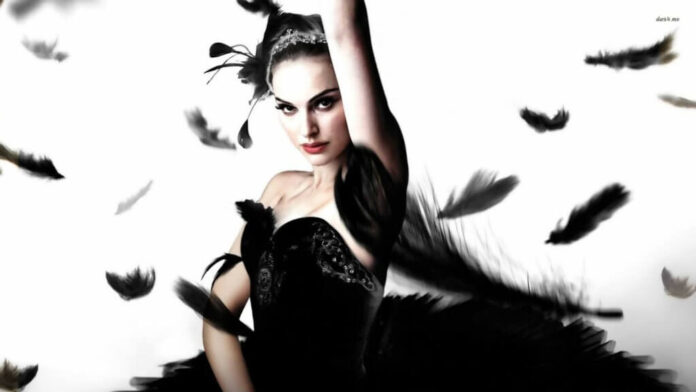We all have watched a movie that leaves a deep impact on our lifestyle and changes the way we see the world. “Black Swan” (2010), is a movie that appalls its audience with its grandeur in explaining its themes. Directed by Darren Aronofsky, the film portrays a young girl, Nina Sayers (played by Natalie Portman) who is a ballerina. As the movie proceeds, we see development in the nature of Nina as she slips into madness aiming too high to be the perfect ballerina.


Since its premiere, Black Swan has been enthralling its audience with such an appealing direction and excellent screenplay, that it almost bagged all of the awards. It was also a billboard success, grossing $330 million worldwide against a $13 million budget.
Nina Sayers had always been a “good girl”- A strict schedule, a disciplined lifestyle, and therefore the same monotonous routine a day. Her mother was a ballerina too and through the movie, we come to ascertain that she was portraying her unfulfilled aspirations through Nina- “So that you wouldn’t make the same mistake I did”. But Nina had to delve into herself and embrace her desires to portray the “Black Swan”. She was excellent in dancing as “White Swan”, but to be accepted within the role of “swan queen” she must be perfect in both. The film proceeds to point out to us an unexpected friendship between Nina and Lily, her competitor and friend who helps bring out the inner black swan within Nina. The end of the movie is the climax. We see Nina, who engrosses herself so into the role of the swan goddess that she fails to distinguish reality from hallucinations as thus faces a similar fate like the Swan Queen.
Dig Deeper
1. “Black Swan” and its vivid description of Mental Health

Well, for starters the movie dealt with mental health when people still considered it as madness. It was very arresting to watch Portman’s role and her relationships develop through the course of the plot. Nina depicted signs of anxiety disorders and bulimia. She often has psychotic breaks which blur the line between hallucination and reality for her.

Moreover, the movie shows the utmost pressure the ballerinas have to go through if not downright hellish torment- A disciplined lifestyle, a strict diet that consists of little or nothing, and a strenuous ballet practice. Ballet is a very competitive industry. To the outside audience, it may seem it is such a graceful dance. The dancers flow with the music lithely and rise with grace almost as if it were a prayer to the God up there- just like angels. But we do not see the toil and pressure they undergo to be an “angel”.

Portman’s character in this film was under a lot of pressure. Her mother was obsessed with her and wanted her to fulfil her aspirations as if it were she in her daughter’s body. The manager was a very sexually aggressive person who kept pushing Nina harder and further which finally ended up in her being pushed beyond her limits.
2. Tchaikovsky’s “Swan Lake” ballet
“Swan Lake” was Tchaikovsky’s first-ever ballet. It was first presented to the audience at the Bolshoi theatre. Eventually, with time and modifications in the choreography, it evolved to be one of the finest ballets of all times. It is staged in almost every theatre as a classic.
“Swan Lake” is a captivating romance of all times. The ballet follows Odette, a swan princess in her venture to seek out true love to break a spell cast upon her by a sorcerer. In the end, when she fails to attain freedom through true love, she welcomes death as the best means to attain liberation. “Swan Lake” embraces various themes like magic, tragedy, and romance in four acts.
The movie embraces the plot of “Swan Lake” as we see Nina fall into the role of Odette, the swan princess. In order to embrace her role, she needs to embrace the deepest and darkest secrets within her. We see Odette and Odile through Nina as her life turns into the ballet. It is almost uncomfortable to watch Portman’s character fall into the inevitable pit of the plot and eventually her demise.
3. Perfection vs Imperfection
Perfection is one of the biggest themes which the movie encompasses. Nina thrives to be the best ballerina in the company. She regulates her diet, exercises, and schedule to utmost strictness so far that it pushes her to death. She is blinded by the illusion of a perfect ballerina and keeps pushing herself to achieve it. She treads on the fine line between passion and obsession and gradually as the movie progresses, we see her delve into a more obsessed state. Her delirium takes peak at the ending which helps her put an outstanding performance for the audience but eventually kills her. The last words Nina whispers to herself be “I was perfect,” while slowly losing consciousness.
Portman’s role in the “black swan” was quintessentially her breakthrough. The movie is like a bud. The more you watch, the more it unfolds. Various themes of obsession, passion, the necessity for self-love, etc. have been secretly mentioned. It has proved its worth over the years and still stays to me as one of the best movies I’ve ever watched and decided to watch it 100 times more. And I always remember what Stephen Hawking said: “One of the basic rules of the universe is that nothing is perfect. Perfection simply doesn’t exist…..Without imperfection, neither you nor I would exist”.
By Sucheta Halder, Kolkata
















